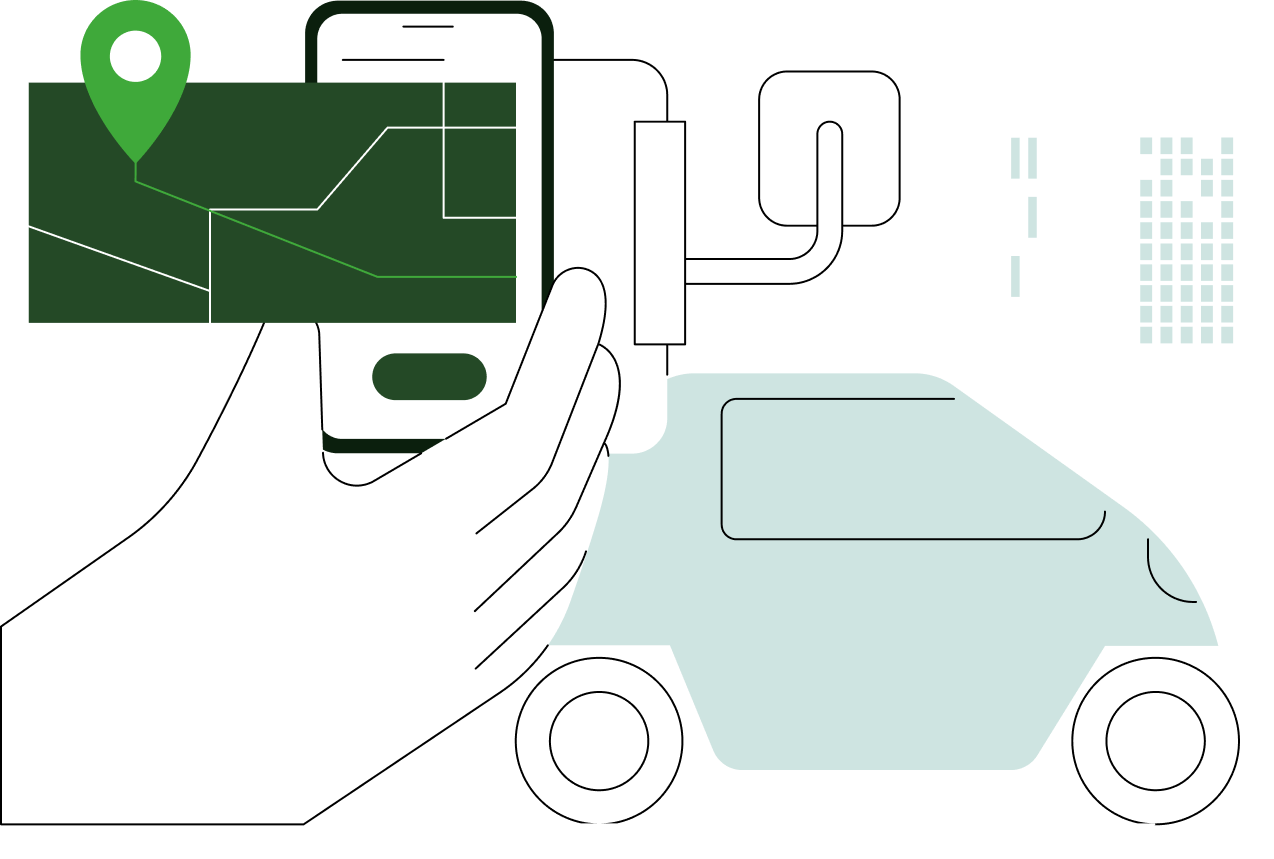Data is transforming the automotive industry by changing how cars are built, driven, and maintained. Modern vehicles are no longer just machines; they are smart devices generating vast amounts of information. By analyzing this data, the automotive industry is optimizing maintenance, integrating AI, and moving toward self-driving cars. This post explores how data is transforming the automotive industry, featuring insights from recent technologies and industry leaders.
Key Takeaways
- How Data is Transforming the Automotive Industry: Data is enhancing how cars are driven, built, and maintained, making them safer and more efficient.
- Big Data in the Automotive Industry: Big data enables car companies to analyze trends, refine products, and improve customer experiences.
- Predictive Maintenance: Predictive maintenance helps prevent breakdowns, cuts costs, and ensures vehicle safety by addressing issues before they escalate.
- AI in Automotive: AI plays a crucial role in improving manufacturing quality, optimizing supply chains, and enhancing customer service.
- Advancements in Self-Driving Cars: Companies like Tesla and Waymo are advancing self-driving technology, using AI to help cars navigate, make decisions, and avoid accidents.
Leveraging Data in the Automotive Industry
Automotive companies are using data analytics to make vehicles safer, more reliable, and efficient.
- Product Development: Data from existing vehicles helps manufacturers design improvements that result in safer, more reliable cars. Sensor feedback allows engineers to refine every new generation of cars.
- Enhancing Customer Experience: Analyzing customer data helps manufacturers provide personalized services. Understanding driver behavior allows for tailored maintenance schedules and enhanced in-car features that improve comfort and safety.
- Real-Time Monitoring: Data collected from vehicle sensors allows for real-time monitoring of vehicle health. Predictive analysis helps prevent failures and extends vehicle lifespan.
These improvements lead to:
- Lower Production Costs: Data insights streamline manufacturing, reduce waste, and boost efficiency.
- Improved Vehicle Safety: Predictive analytics enable early detection of potential faults, reducing risks.
- Increased Customer Satisfaction: Personalized services and proactive maintenance enhance customer loyalty.

The Power of Big Data in Cars
Big data is driving major changes in the automotive industry by providing insights that help companies make smarter decisions, reduce risks, and build better products.
- Understanding Market Trends: Sales and market data help predict customer needs.
- Optimizing Product Development: Vehicle data informs engineers on designing more reliable cars.
- Efficient Manufacturing: Data-driven insights result in smoother production processes.
- Personalized Customer Service: Customer data enables more responsive and tailored services.

Predictive Maintenance: Keeping Cars Running Smoothly
Predictive maintenance uses data from vehicle sensors to predict when parts might fail, allowing repairs before issues escalate.
Benefits of Predictive Maintenance:
- Less Downtime: Prevents unexpected breakdowns.
- Cost Savings: Addressing issues early helps avoid major repair costs.
- Increased Safety: Ensures vehicle parts are functioning properly.
For example, General Motors uses predictive data to track vehicle components and schedule maintenance in advance.
AI is Transforming the Automotive Industry
Artificial intelligence (AI) is a key factor in improving the automotive industry.
AI in Manufacturing
BMW uses AI to enhance production quality. AI-powered cameras, for instance, inspect paint jobs for defects, ensuring high-quality production while speeding up processes.
AI in Supply Chain Management
Ford employs AI to predict supply needs, adjust production schedules, and manage inventory, reducing waste and enhancing productivity.
AI in Customer Service
Automakers are also using AI chatbots for instant customer support. These chatbots help answer questions and troubleshoot issues efficiently.
Moving Towards Self-Driving Cars
Data is driving the development of self-driving cars. Companies like Tesla and Waymo are at the forefront, using AI to push the limits of autonomous driving.
How AI Powers Self-Driving Cars
Self-driving cars use AI to interpret data from sensors, cameras, and GPS to drive safely.
Key AI Functions in Self-Driving Cars:
- Environmental Perception: Detects obstacles, traffic signs, and road conditions.
- Decision Making: Chooses the best actions in real-time.
- Route Planning: Calculates the optimal travel path.
Tesla uses AI for its Autopilot and Full Self-Driving features, constantly refining how vehicles understand their surroundings. Waymo has also made significant strides with its self-driving taxi fleet, showcasing real-world capabilities of AI-driven transportation.
Managing data from self-driving cars is a complex challenge, and companies are investing heavily in solutions to handle this data effectively.
Safety and Efficiency: Self-driving cars have the potential to significantly reduce accidents caused by human error. They also promise better traffic flow and lower emissions through optimized driving.
Challenges in Data Analytics for Cars
While data analytics brings many benefits, the automotive industry faces significant challenges.
Handling Large Volumes of Data
Modern cars generate vast amounts of data, requiring effective storage and processing solutions.
Data Integration and Quality
Combining data from multiple sources—such as sensors and customer feedback—can be challenging. Ensuring data quality is vital for making accurate decisions.
Scaling Infrastructure
As the volume of data grows, automotive companies need scalable infrastructure that can manage increasing data demands efficiently.
The Growing Need for Data Experts
With data becoming central to automotive operations, the need for experts in data science, machine learning, and analytics is growing. These professionals are essential for interpreting data, developing predictive models, and driving innovation.
Conclusion
How data is transforming the automotive industry is evident in the many advancements across manufacturing, maintenance, customer experience, and autonomous driving. Even though challenges remain, the potential benefits in terms of safety, efficiency, and customer satisfaction are significant.
As data and AI continue to reshape the automotive industry, how will these changes impact our daily lives, and what new opportunities or challenges will emerge?



.png)
.png)
.png)









